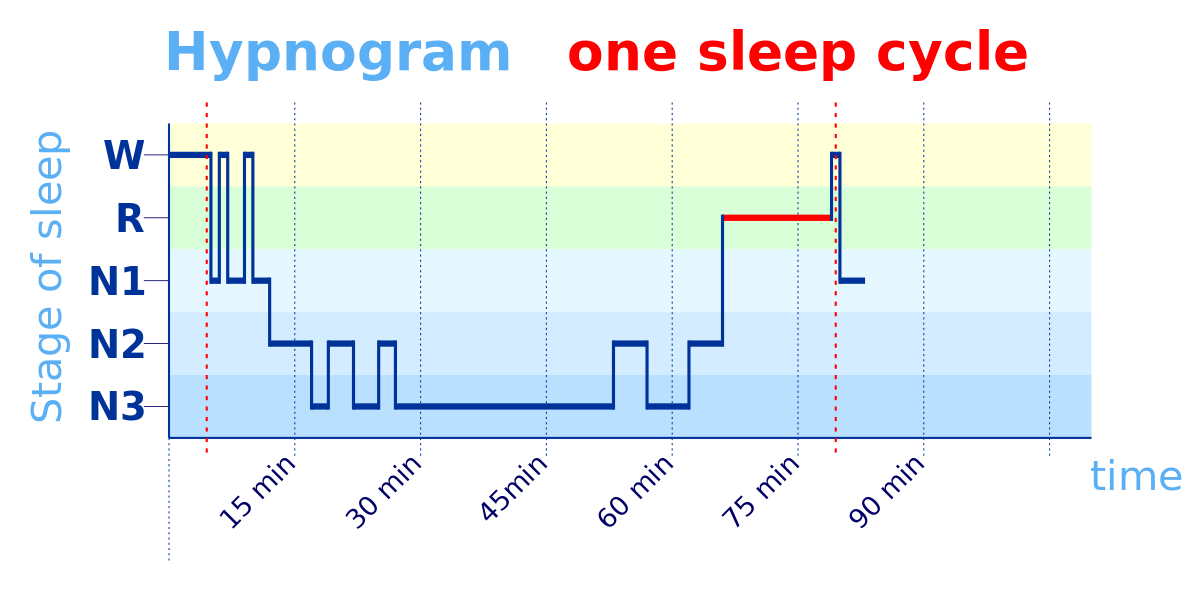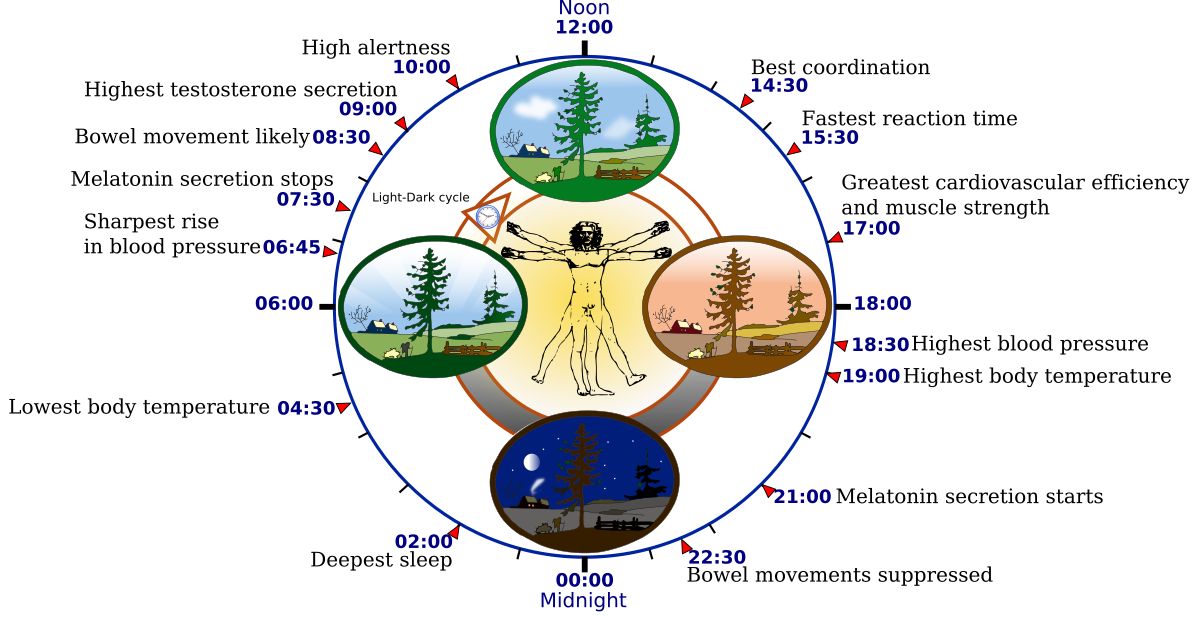Sorry, but contrary to the title, when it comes to your health and fitness, there is no magic pill. It requires hard work and dedication to achieve transformative change. Well, if there was a magic pill, I would have to say sleep is the closest contender. If you know that you’re not sleeping enough, or getting poor quality sleep, the following section will hopefully convince you to prioritize your sleep as if your life depended on it.
Sleep is the only time where your body and brain can fully rest and recover. Even though sleep may seem like the most passive activity in the world, numerous things happen while you are off in dreamland, such as repair of damaged cells and tissues, clearing metabolic waste and toxins, as well as regulation of hormones and immune functions. As far as cognitive benefits go, sleep increases alertness, creativeness, solidifies memory, and even helps with cravings and motivation (ever wonder why you crave junk food after a terrible night of sleep?)
Looking at the evidence, There’s no arguing that sleep is important. But how much sleep do we exactly need? What about sleep quality? How do we take individual difference into account? To answer these questions, we’ll turn to epidemiology, EEG data (measuring brain’s electrical activity), and evolutionary biology.
Sleep Duration
How much sleep do we exactly need? Is the typical 8 hours sufficient for everybody? Just like everything else, this depends on the individual. While some people may thrive on 8 hours, some may need more or less. As a general outline, the national sleep foundation has put out some well-researched recommendations based on age group differences.

As an adult (18-64), you need around 7-9 hours of sleep. The younger need more sleep, and the elderly may need slightly less.
7-9 hours of sleep per night as an adult is a good starting point. Depending on your individual differences, like exercise load and intensity, cognitive stimulation, and illness, you may be on the lower or the higher end. As an example, a hard training, full time athlete will probably need more sleep than a recreational athlete.
Sleep Cycle
Even though sleep may just seem like a long constant state of total body relaxation and shut off, sleep actually consists of multiple stages, all serving important functions.
There are 2 types of sleep, non-REM, and REM sleep. REM stands for “rapid eye movement”. During this stage, your eyeballs are rapidly moving around underneath your closed eyelids (creepy, I know). There are 3 stages of non-rem sleep, and one stage of rem sleep, all going in sequential order, to make up 4 stages of sleep. Going through the entire sleep cycle takes around 90 minutes. Your sleep quality depends on getting adequate, uninterrupted sleep in each of these stages. The duration allows you to go through the right amount of total sleep cycles for full recovery.
Stage 1 (non-REM)
- This is the transition period from being awake and alert to falling asleep. Your muscles start to relax, and eye movement, heartbeat and breathing slows down.
Stage 2 (non-REM)
- Breathing and heartrate continues to slow, and the eyes stop moving. Your body temperature drops, and the brain waves start to slow.
Stage 3 (non-REM)
- This is when you enter deep sleep, where your brain waves, heart and breathing rate are at their lowest. This is the portion of sleep where your body repairs itself, replacing damaged cells, tissues, healing wounds, and building muscle. It is hard to wake you up at this point.
Stage 4 (REM)
- This is where your eyes move rapidly underneath your eyelids. Your heart and breathing rate increases, and brain waves become similar to as if you’re awake. This is where the majority of your dreaming occurs. This stage is important for learning and memory formation.

Understanding the sleep-wake cycle: The Circadian rhythm
Why do we feel sleepy when it gets dark? Why does the morning sun feel so good first thing in the morning? That’s because of your natural circadian rhythm, which you can think of as your internal clock. When the body is healthy, and in the right environment, it is incredibly good at understanding what time of the day it is, and it primes its internal processes to meet the possible demands of the perceived time. Have a look below at the diagram. At 21:00 (9 pm), melatonin (the hormone that makes you sleepy) starts to get made. At around 6:45am, you get a sharp rise in blood pressure to naturally wake you up. Evolutionarily, this makes a lot of sense, since human eyes are quite useless in the dark, which left us vulnerable after sunset. Hence, you retreat into your safe shelters and sleep until the sun comes up.
Zeitgebers are the external cues that influence our circadian rhythms. In the previous examples, the production of melatonin at 9pm is influenced by the decrease in blue light and a drop in temperature. The sharp rise in blood pressure at 6:45am is influenced by the increase in blue light and a rise in temperature as the sun comes up. You can see that the body relies on these external cues (Zeitgebers) to keep our circadian rhythms in check. However, exposing yourself to certain zeitgebers at the wrong time can completely throw our rhythms off. A prime candidate would be artificial blue light after sunset. As mentioned previously, through evolution, our bodies were adapted to respond to light exposure a certain way. When the receptors in our eyes are exposed to the shiny blue screen of your phone or laptop after sunset, the natural melatonin secretion that should occur in the evening stops.
Understanding the relationship between zeitgebers and the circadian rhythm will empower you to make appropriate choices on when to expose yourself to certain stimuli, such as light, exercise, food, and temperature.

The 6 steps to sleep like a baby
Whether you have trouble falling asleep or getting quality sleep, there are plenty of things within your control to set you up for your ideal nightly slumber. Here are some of the most relevant tips.
1) Keep a consistent sleep schedule
- Set a sleep schedule and stick to it. Having a sporadic sleep schedule can ruin the effectiveness of sleep, even if you consistently get 8 hours of shut eye. Everyone’s ideal sleep schedule depends on the individual, but you can follow these simple guidelines to make sure you’re getting adequate sleep.
- Get 7-9 hours of sleep daily.
- Set your bedtime anywhere from 8pm – 11am.
- Go to bed when you feel tired and sleepy. (see guidelines below to ensure you’re not interrupting the bed time signals.)
2) Start your morning right
- Get sunlight for 10-15 minutes as soon as you wake up = use a light therapy box if weather or geographical location doesn’t allow for sunlight.
- Light exercise – Go for a walk, or perform some light body weight exercises = decreases melatonin levels and helps naturally increase catecholamines to wake you up.
- Best way to kill two birds with one stone = exercise in the sun!
3) Kill the electronics at night
- Blue light emitting devices like your laptop, tv, or smartphone can disrupt your natural circadian rhythm, if you’re exposed to it after sundown. If completely avoiding devices after 8pm is an impossible task for you, follow these steps to minimize your exposure.
- Install flux on your laptop / computer.
- Turn on night shift on your smart phones.
- Invest in a blue light blocking glasses
4) Stimulus control
- When it’s getting close to bed time, start winding down and decrease the level of high stimulating activities. In the late evening, avoid hard exercise, stressful work duties, or watching intense videos and playing video games.
5) Food and caffeine
- There seems to be a lot of opinions when it comes to what, when, and how much to eat before bed time. This can be highly individual, so experiment with what works best for you. As a general guide line, have your last big meal no closer than 1 hr before bed time, as digesting large amounts of food in bed can disturb your sleep.
- Caffeine: This is highly dependent on the individual as well. Caffeine’s effect in some people is much bigger than others (slow vs fast caffeine metabolizers). As a general rule of thumb, cut off caffeine latest by 2pm. If you find that this effects your sleep, you may need to have an earlier cut off time.
6) Your room environment
- Keep your room dark, quiet, and cool. Here is a great diagram from the national sleep foundation to set up your bedroom for optimal sleep

Interested in doing more reading? My research links are below!
https://pubs.niaaa.nih.gov/publications/arh25-2/85-93.htm
Gooley, J. J., Chamberlain, K., Smith, K. A., Khalsa, S. B., Rajaratnam, S. M., Van Reen, E., … Lockley, S. W. (2011). Exposure to room light before bedtime suppresses melatonin onset and shortens melatonin duration in humans. The Journal of clinical endocrinology and metabolism, 96(3), E463–E472. doi:10.1210/jc.2010-2098
Libert, J. P., Bach, V., Johnson, L. C., Ehrhart, J., Wittersheim, G., & Keller, D. (1991). Relative and combined effects of heat and noise exposure on sleep in humans. Sleep, 14(1), 24–31. https://doi.org/10.1093/sleep/14.1.24
Higuchi, S., Motohashi, Y., Liu, Y., & Maeda, A. (2005). Effects of playing a computer game using a bright display on presleep physiological variables, sleep latency, slow wave sleep and REM sleep. Journal of Sleep Research, 14(3), 267–273. https://doi.org/10.1111/j.1365-2869.2005.00463.x
Drake, C., Roehrs, T., Shambroom, J., & Roth, T. (2013). Caffeine effects on sleep taken 0, 3, or 6 hours before going to bed. Journal of Clinical Sleep Medicine : JCSM : Official Publication of the American Academy of Sleep Medicine, 9(11), 1195–1200. https://doi.org/10.5664/jcsm.3170
https://www.sleepfoundation.org/articles/sleep-athletic-performance-and-recovery
http://healthysleep.med.harvard.edu/healthy/matters/consequences/sleep-and-disease-risk
https://www.hopkinsmedicine.org/health/wellness-and-prevention/the-effects-of-sleep-deprivation